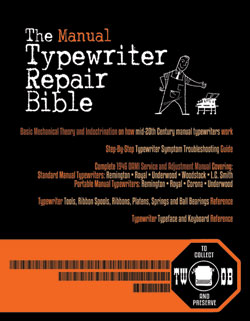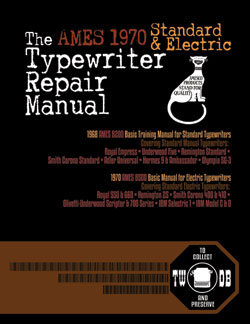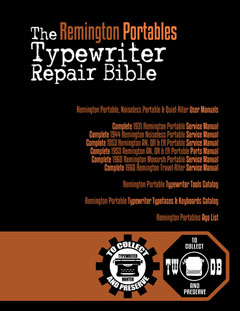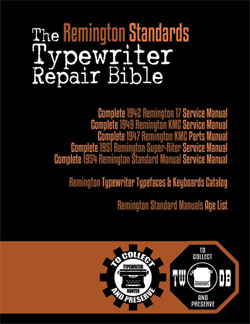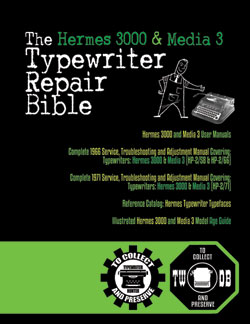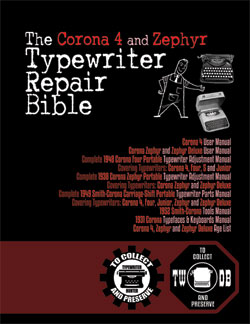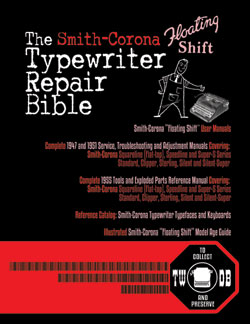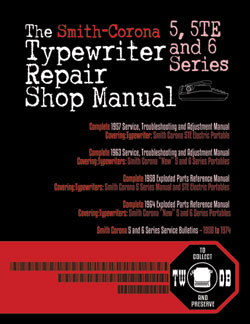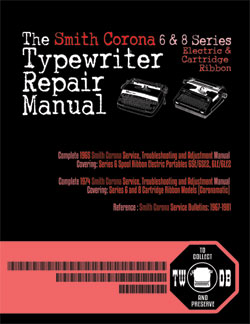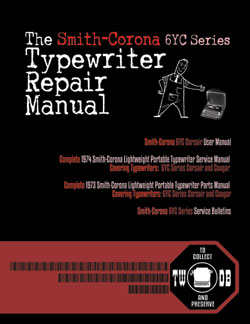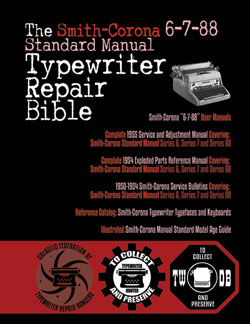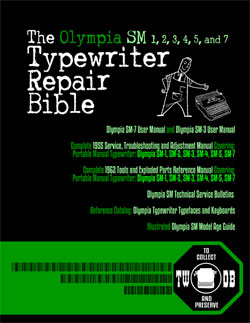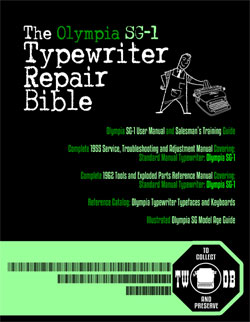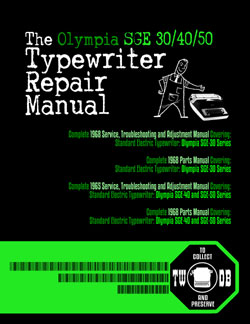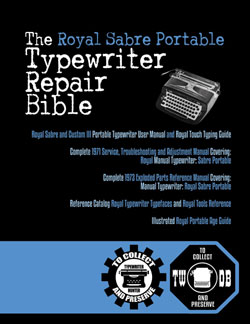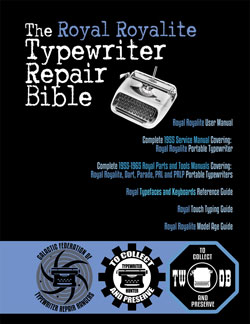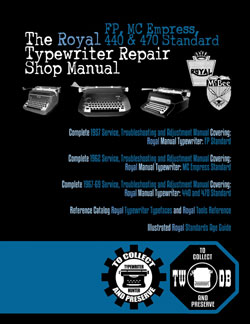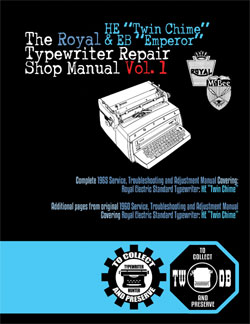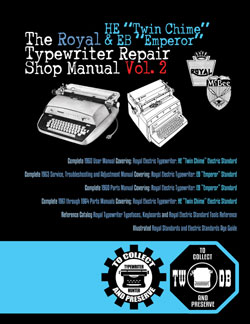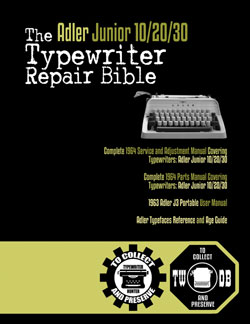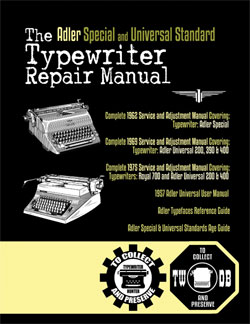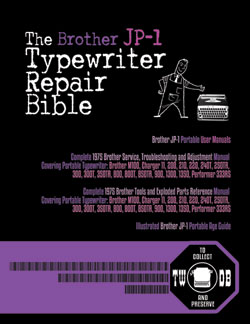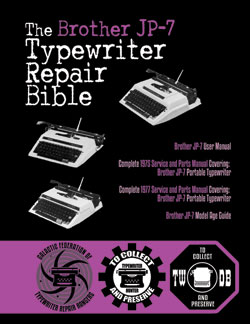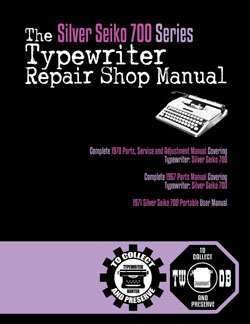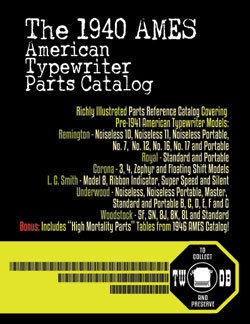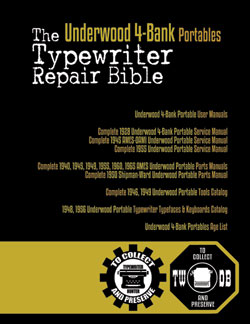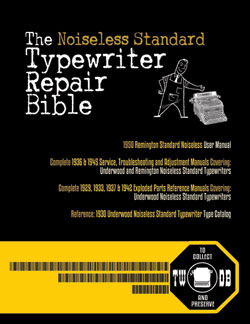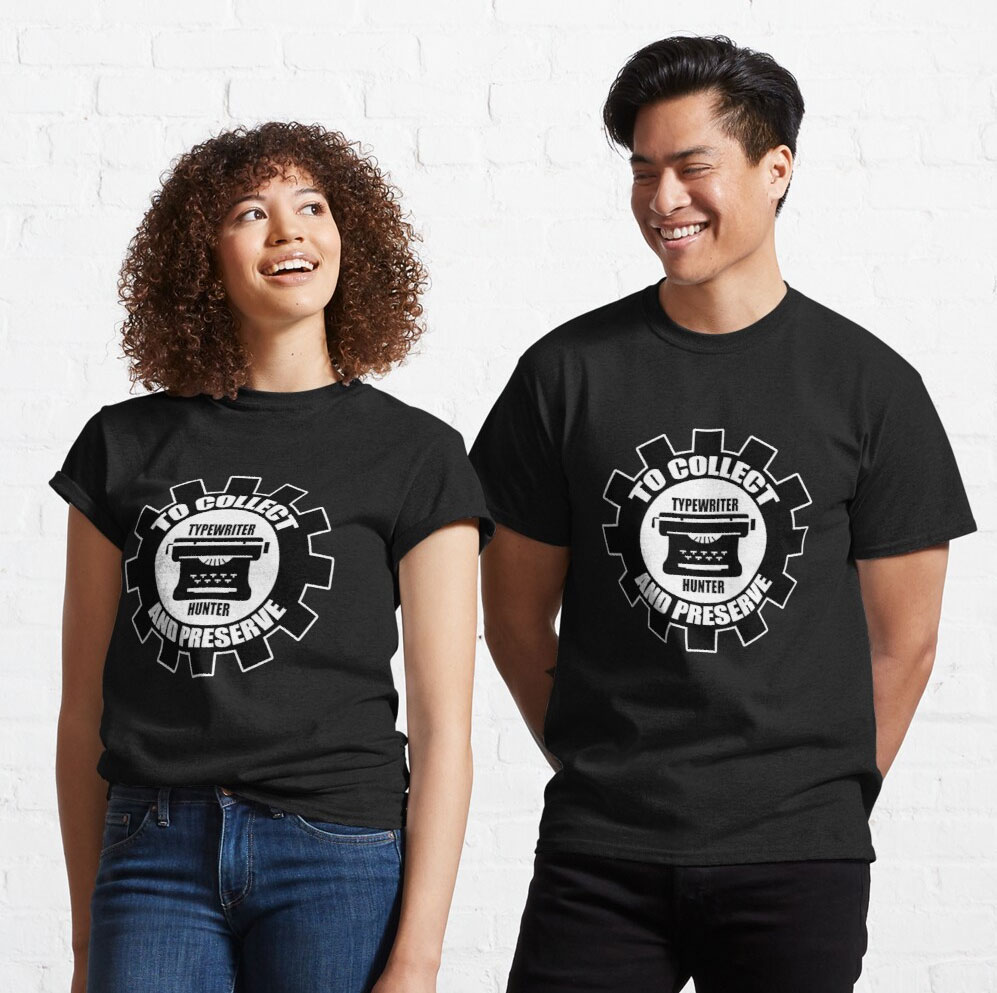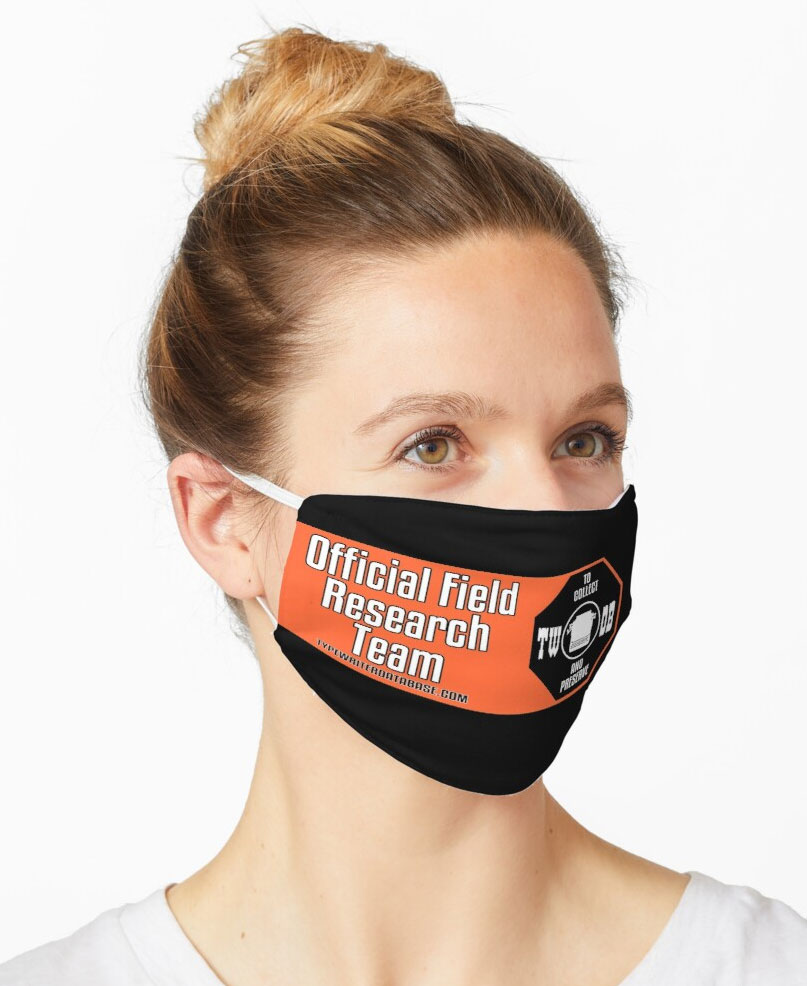1942 Urania 8 #259548
Status: My Collection
Hunter: Jonas Lauritsen (legofanatikeren)
Created: 08-08-2023 at 11:36AM
Last Edit: 09-10-2023 at 03:36AM
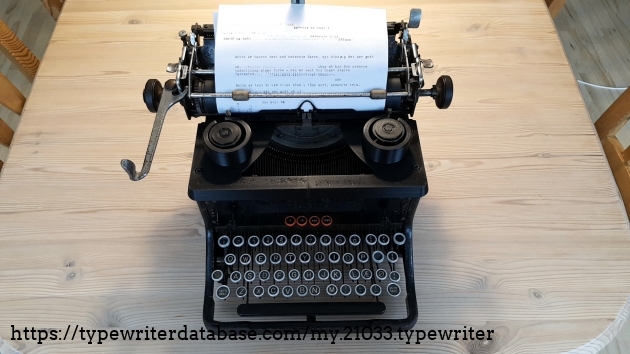
Description:
This machine is single-handedly responsible for my interest in typewriters, and therefore you shall just have to bear with me for a moment as I reminisce... Feel free to skip to the pictures.
It was a gift I received years ago, maybe 2014, give or take a few years, and it just sat as a decoration piece.
In the wake of the new year 2021, having gotten just about half a year of engineering studies under my belt, equipped with about 18 months of 3D drawing experience, and most importantly, armed with a 3D printer, I set about on a quest to make this machine WORK.
What I had never noticed, for I didn't know what I didn't know, was that the machine had no top casing, or front plate, and was missing several buttons. I simply thought that was how it looked, no further thought invested. Until that day on Jan 9th, 2021, when I sat down and seriously thought about designing some spools and spool-holders to get it back and running.
Fast forward to June 2023, and in-between years of studying for an engineering degree, tons of other 3D design projects, and life in general, as well as moving twice, finding a job, and keeping up with an ever-growing list of hobbies and interests (getting a Dalton Adding machine up and sort of running took a big chunk of my time too...), I finally had the extended window of time necessary to sit down and ONCE AND FOR ALL get this machine back to its glory days. Scabs, rust, flakes and all.
It took about 4 days - close to 40 hours all told - to get the interfaces measured up, printed, tested, and adjusted, iterating until I had a design that both worked AND sort of looked like what it was supposed to look, making use of the original M4 threaded holes in the machine presumably for the original top-cover. I also designed a simple front plate with the URANIA logo and the model and manufacturing year, which slides right into the brackets presumably meant for the original cover.
Beyond designing the top cover, spools, dust shields and front plate, it also got a serious cleaning (as much as I dared, AKA no liquids/chemicals), and I tightened up some loose screws in the carriage return lever that jammed.
Beyond the big glaring issue of no top cover or spools, there was a couple of other issues I tackled:
1) there was no keyheads for the margin release button, or the tabulator creator. So I made some press-fitting ones in black (I detest having to use glue). They turned out great, if I do say so myself.
2) Three of the keys was missing the metal rim and/or glass cover and/or the actual insides of the key-caps, being just an empty metal shell. I made some "filling" out of some cardboard in "very" measured thicknesses, put a tiny black piece of cardboard on top, and then a tiny piece of clear plastic for the glass top. Then, I printed some new rims in silvery plastic, in a press fitting as well. The result is pretty decent considering it's litterally cardboard and plastic, but it does so much for the actual visuals and feel when typing those letters. Eventually I'll probably write some text on the black cardboard too.
3) There was no ink ribbon, obviously, so I tried a standard 13mm red/black ribbon. Only, turned out it was built for a 3/4" (20mm) size, which is close to impossible to source as far as I know, so I acquired a 13mm pure black one in order to at least get it typing without mixing up red and black (see pictures). It works fine.
Alright, backstory/narrative aside, here's some actual concrete info on this thing:
it's a Danish keyboard layout, with most of the original keys intact, and some partially visually restored by myself.
The serial number - found on the right side of the frame, visible when the carriage is moved to the left and looking down - indicate this machine is from 1942, which i do find interesting.
Denmark was under German occupation in this timeframe, and so this machine probably has a very interesting tale of how it came to be, that a German machine - the invader - had a Danish keyboard... I can only speculate.
Apart from the glaring lack of top cover and spools, as well as the keys, everything works just fine, apart from the § key, which is permanently bent down and interferes with the shift key when used. Otherwise, I can find no faults with the functionality.
The tabulator keys 1 10 100 1000 works perfect, there's a carriage lock on the left side, crisp platen turning, functioning ribbon reversing, and all four feet are intact.
Sure, there's some rust here and there, the paint has seen better days, and the type basket itself is also spotted with rust - which I dare not try to combat, and since it types just fine, it's just cosmetic anyway. Part of the charm, at this point, if anyone asks.
A solid machine, the oldest in my modest collection, and by far the most interesting, both in terms of history,, visuals, age and obscurity. With only three other Urania 8's on this website, it'd be a crime to not add this (slightly modded!) machine as well.
Typeface Specimen:
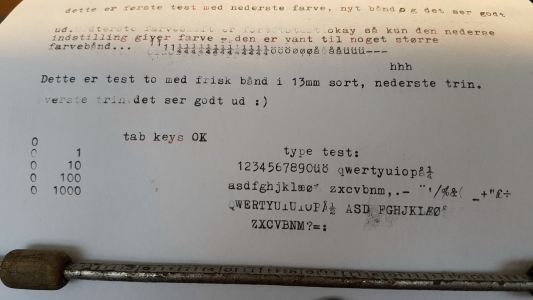
Photos:
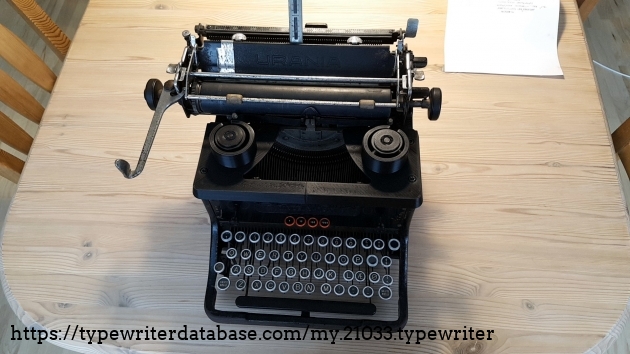
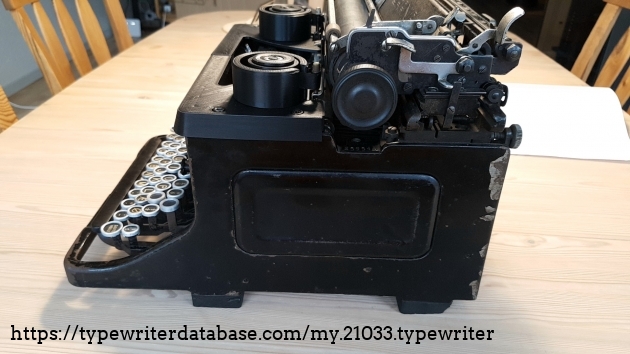
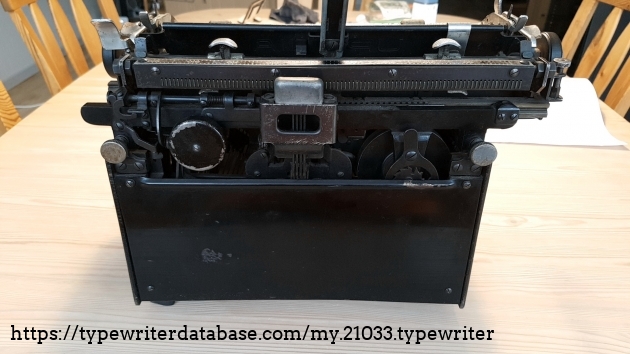
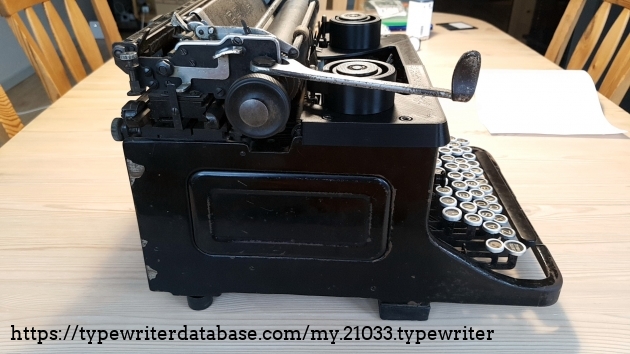
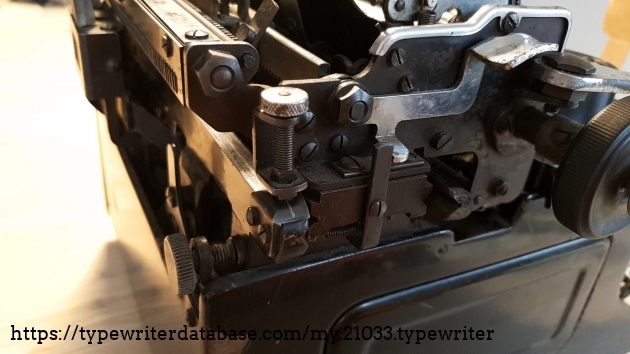
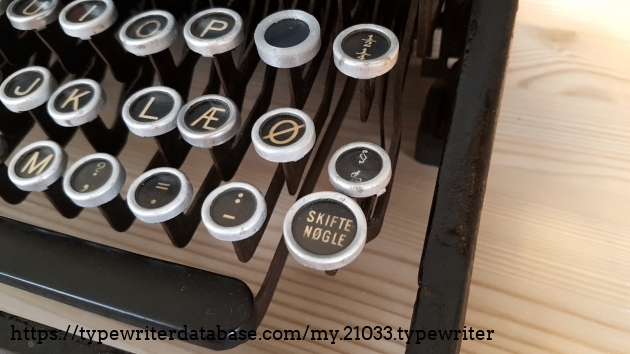
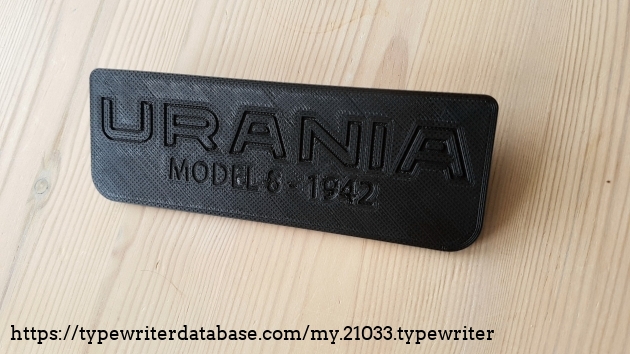
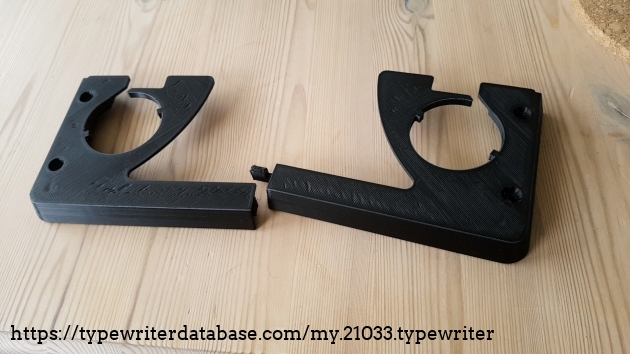
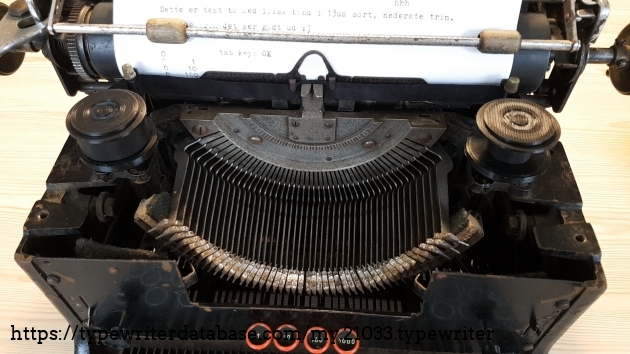
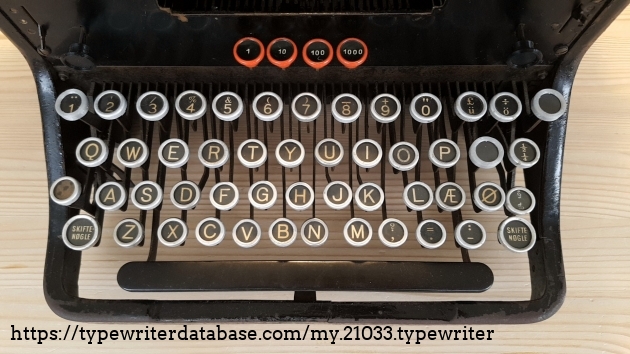
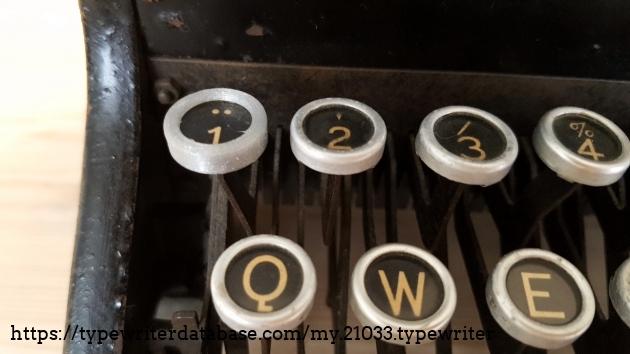
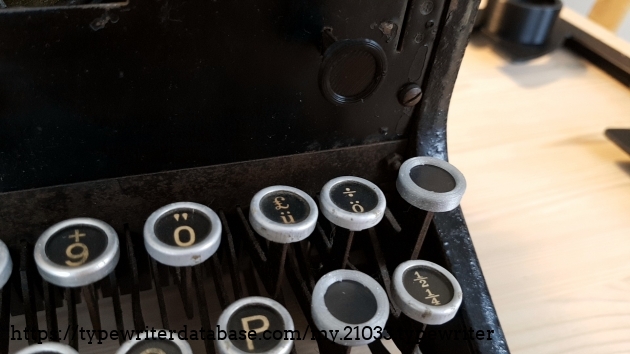
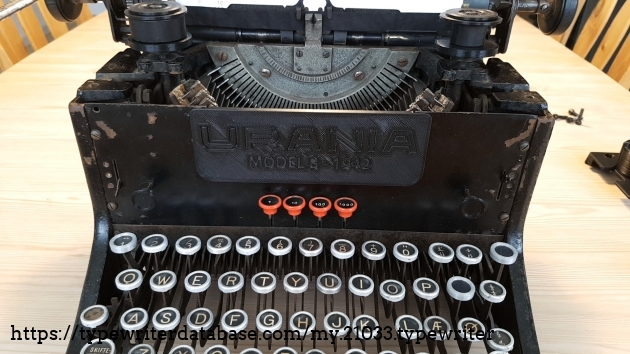
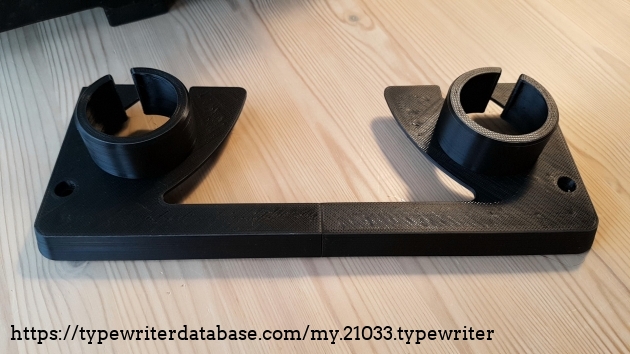
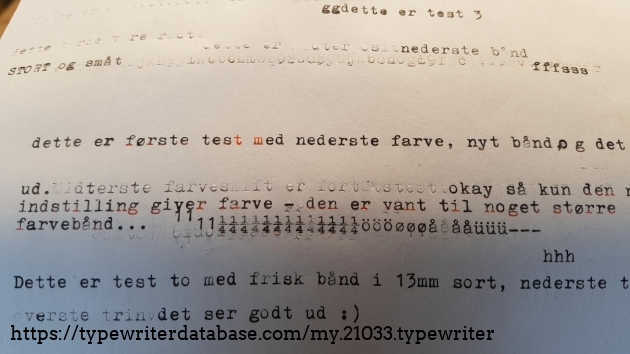
Hunter: Jonas Lauritsen (legofanatikeren)
Jonas Lauritsen's Typewriter Galleries [ My Collection ] [ My Sightings ]
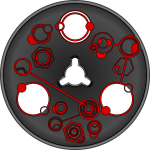
Status: Typewriter Hunter
Points: 1077
Casual collector of replica flintlock pistols, and in that same vein, picked up a couple of typewriters through the years - as a mechanical engineer, I could not resist.
RESEARCH NOTE: When researching the Urania 8 on a computer with lots of screen real estate, you may find that launching the Urania Serial Number page and the Urania 8 By Model/Year/Serial page in new browser windows can give you interesting perspectives on changes throughout the model series.
